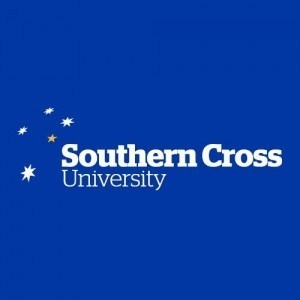Photos of university / #fu_berlin
Advertisement
The MBL-FU is a postgraduate master programme in English, which has been offered since the winter semester 2010/2011 from the Institute of German and European Business, Competition and Regulatory Law. Its specialisation lies besides the International and European business and competition law also in energy and telecommunication law and because its classes are given by the high-ranking practitioners and academics, it is a unique programme at the Freie Universität Berlin.
In Germany the MBL is one of the very few postgraduate programmes which pursues a blended-learning- concept, combining traditional learning methods and e-learning. The course is intended to give legal scholars and economists from businesses, law firms and public authorities the opportunity to gain in-depth, specialist knowledge in the areas of international and European competition and regulatory law.
The course combines classic in class lectures and e-learning concept. The in class lectures are all-day lectures and are held always Fridays and Saturdays. Here experts give the master students the relevant knowledge and present them cases from the praxis. In the lesson-free time the master students use the internet platform in order to deepen the knowledge they gained in the classes and to discuss together several cases.
The MBL-FU is due to its international focus an international master course. Students come from all over the world. Due to the specialization in competition and regulatory law, an international network is created, from which the students can profit for a lifetime.
First Part (6 Months) - Foundations of Business and Business Law
* Module 1 - European and International trade and contract law
* Module 2 - Introduction to the economic fundamentals of competition and regulatory law
* Module 3 - European Competition Law
* Module 4 - International and European framework of business, competition and regulatory law
Second Part (6 Months) - Competition and Regulatory Law
* Module 5 - Advanced European competition and regulatory law
* Module 6 - Fundamentals of Regulatory Law
* Module 7 - Advanced Regulatory Law
* Master Thesis
Want to improve your English level for admission?
Prepare for the program requirements with English Online by the British Council.
- ✔️ Flexible study schedule
- ✔️ Experienced teachers
- ✔️ Certificate upon completion
📘 Recommended for students with an IELTS level of 6.0 or below.
The German Academic Exchange Service (DAAD) awards scholarships. Here one should consider that the applications deadlines for the DAAD-scholarships and the MBL-FU Master course are not identical. Applications for scholarships for DAAD are generally to be submitted a year in advance. The exact deadlines vary according to the country of origin.
Accreditation
System Accreditation
In the context of its quality management system, Freie Universität Berlin has relied on the system accreditation process since early on, deliberately choosing not to engage in across-the-board accreditation of individual programs of study. Since the Conference of Ministers of Culture adopted the resolutions of the Accreditation Council dated February 28 and 29, 2008, regarding the criteria for system accreditation, the university has been making internal preparations to put system accreditation into practice.
What Is System Accreditation?
While conventional accreditation and re-accreditation processes review study programs on a case-by-case basis to determine whether they meet minimum standards, system accreditation focuses on evaluating the quality assurance system that applies to the institution as a whole. When this internal quality assurance system is accredited, the result is that all curricula that have been approved under the system are accredited for a period of six years.
In the course of system accreditation, the structures and processes that are relevant to academic and teaching activities are reviewed to determine whether they ensure that the appropriate goals for qualification are met and that the programs offered are of high quality. The European Standards and Guidelines for Quality Assurance in Higher Education (ESG), the requirements of the Conference of Ministers of Culture, and the criteria established by the Accreditation Council apply during this process.
A successful system accreditation serves as proof that the university´s quality assurance system in the area of academics and teaching is able to ensure that the appropriate goals for qualification are met and to assure the high standards of quality applied within its programs.








